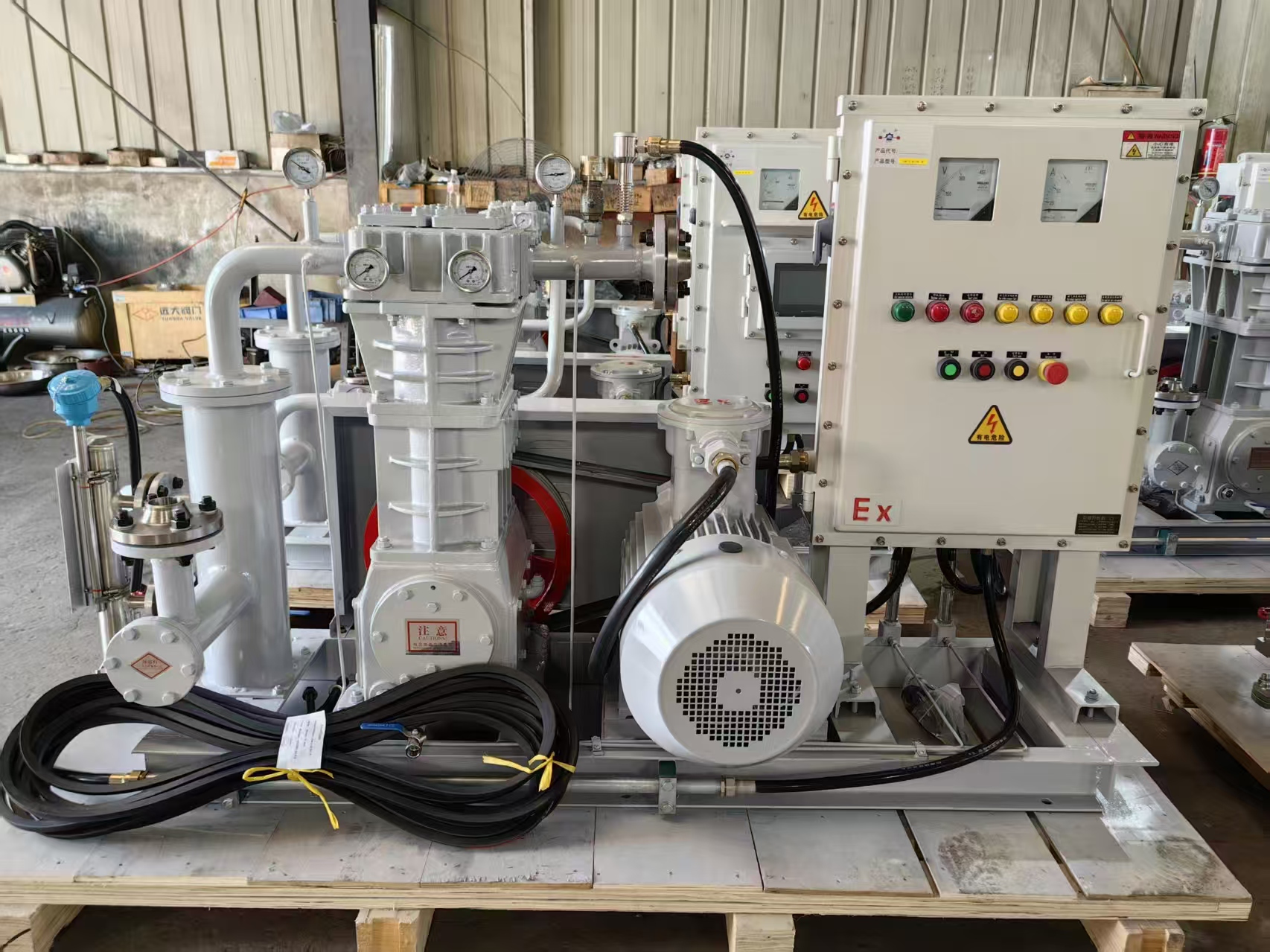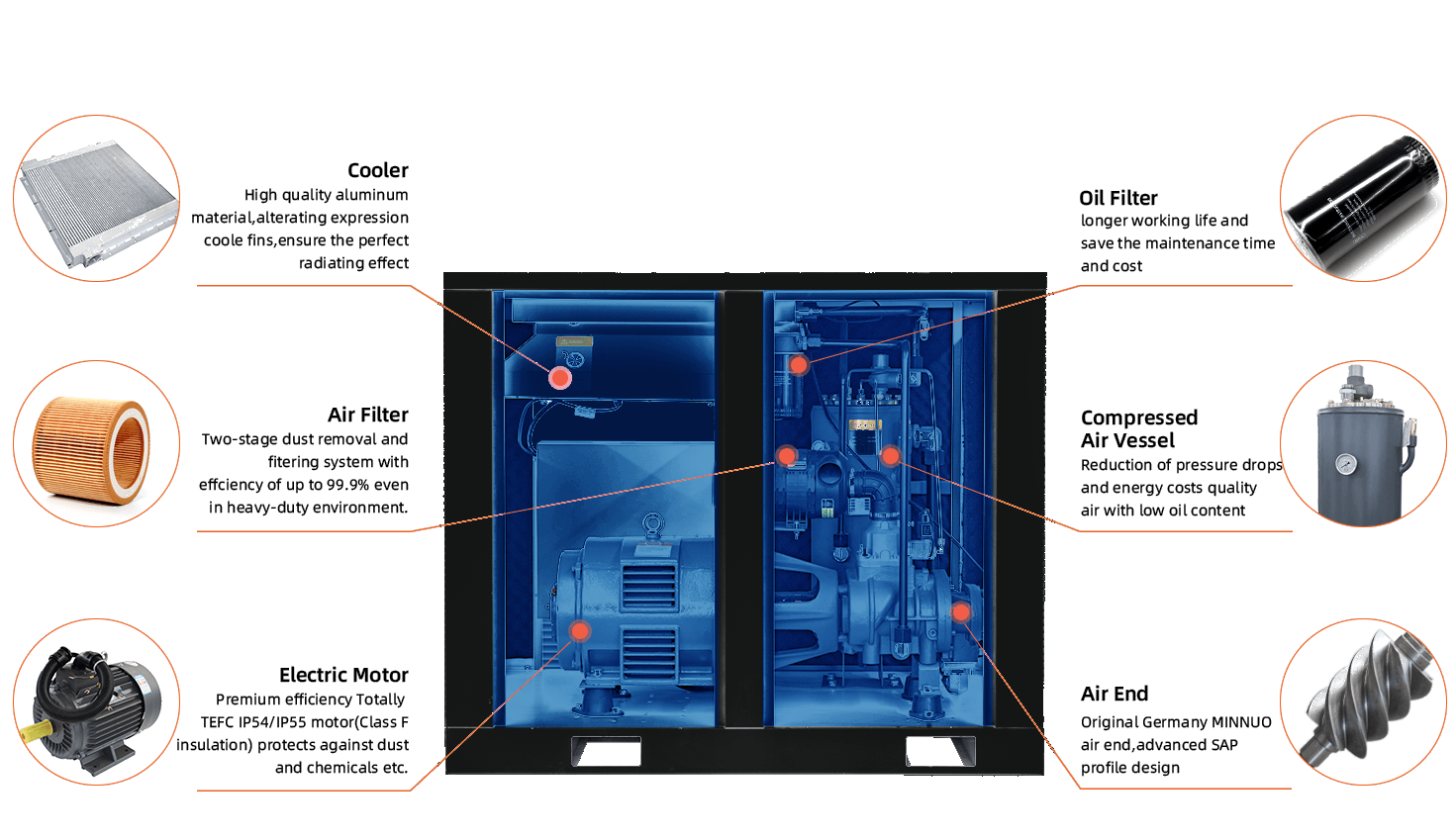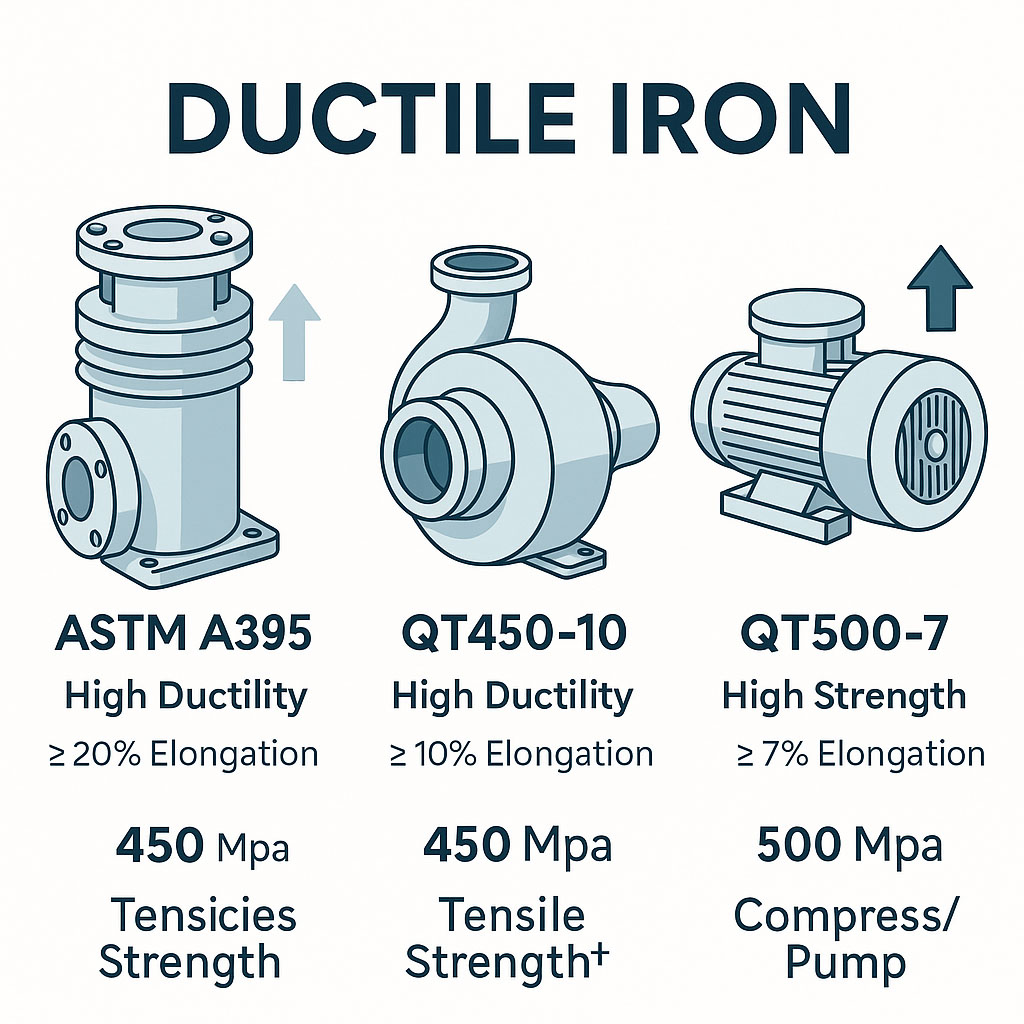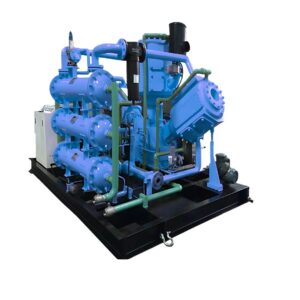Effective cooling is paramount for the optimal performance and longevity of oil-free air compressors. Without proper cooling, compressors can overheat, leading to reduced efficiency and potential system failures. This article delves into best practices for managing cooling systems in oil-free air compressors, ensuring they operate efficiently and reliably.
Understanding Cooling Methods
Oil-free compressors primarily utilize two cooling methods: air-cooled and water-cooled systems.Quincy Compressor
Air-Cooled Compressors
These systems dissipate heat using ambient air. They are generally simpler and more cost-effective but may be less efficient in high-temperature environments.
Water-Cooled Compressors
Utilizing water to absorb and carry away heat, these systems are more efficient in maintaining optimal temperatures, especially in demanding applications. However, they require a consistent water supply and more complex infrastructure.
🛠️ Maintenance Best Practices
Regular maintenance of cooling systems is crucial for the sustained performance of oil-free compressors.
-
Routine Inspections: Regularly check for any signs of wear, leaks, or blockages in the cooling system components.
-
Cleaning Heat Exchangers: Ensure that heat exchangers are free from debris and scale to maintain efficient heat transfer.
-
Monitoring Coolant Quality: For water-cooled systems, regularly assess the quality of the coolant to prevent corrosion and scaling.
-
Checking Airflow: In air-cooled systems, ensure that airflow is unobstructed and fans are functioning correctly.
Implementing Heat Recovery Systems
Integrating heat recovery systems can enhance energy efficiency by repurposing waste heat generated during compression. This recovered heat can be utilized for space heating, water heating, or other processes, reducing overall energy consumption.
Enhancing Energy Efficiency
Optimizing the cooling system contributes significantly to the energy efficiency in compressors.
-
Variable Speed Drives (VSDs): Implementing VSDs can adjust the compressor’s motor speed to match demand, reducing energy usage.
-
Ambient Temperature Management: Maintaining a controlled environment around the compressor can reduce the cooling load and improve efficiency.
-
Regular System Audits: Conducting periodic energy audits can identify areas for improvement in the cooling system and overall compressor operation.
Proper management of cooling systems in oil-free air compressors is essential for maintaining performance, extending equipment life, and enhancing energy efficiency. By understanding the cooling methods, adhering to maintenance best practices, and implementing energy-saving measures, operators can ensure their compressors operate optimally.
For tailored solutions and expert advice on optimizing your oil-free compressor systems, contact our team at Keepwin Technology Hebei Co., Ltd.
📧 Email: keepwin@keep-win.com
🌐 Website: www.keep-win.com











